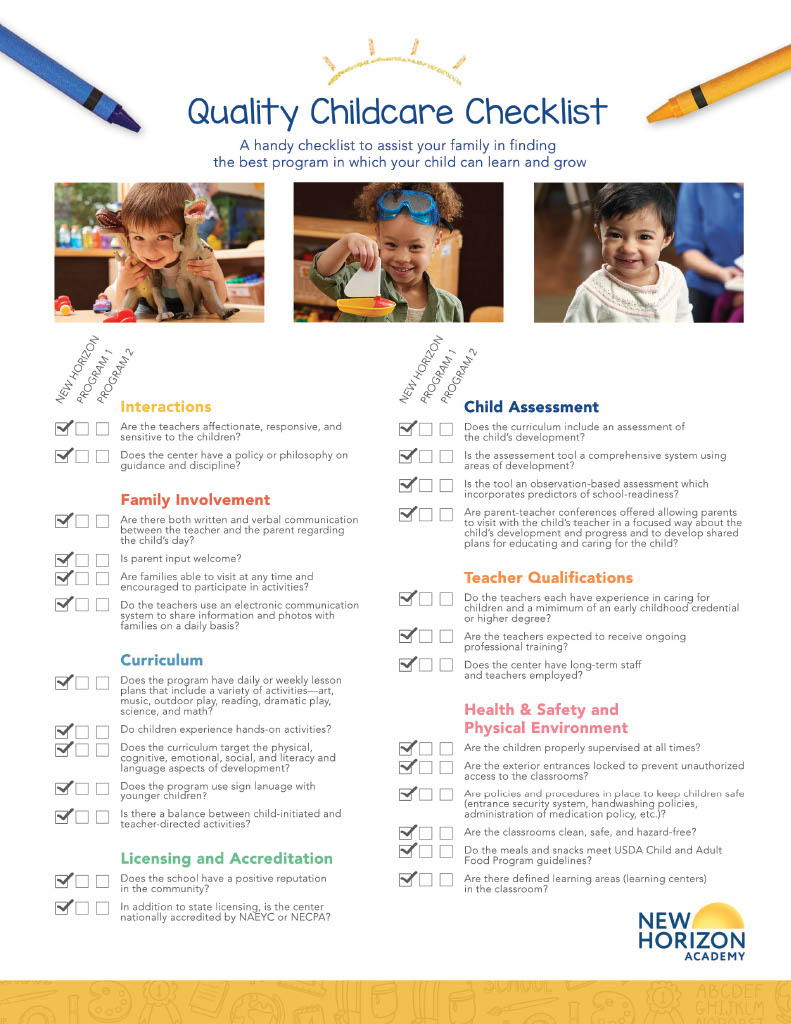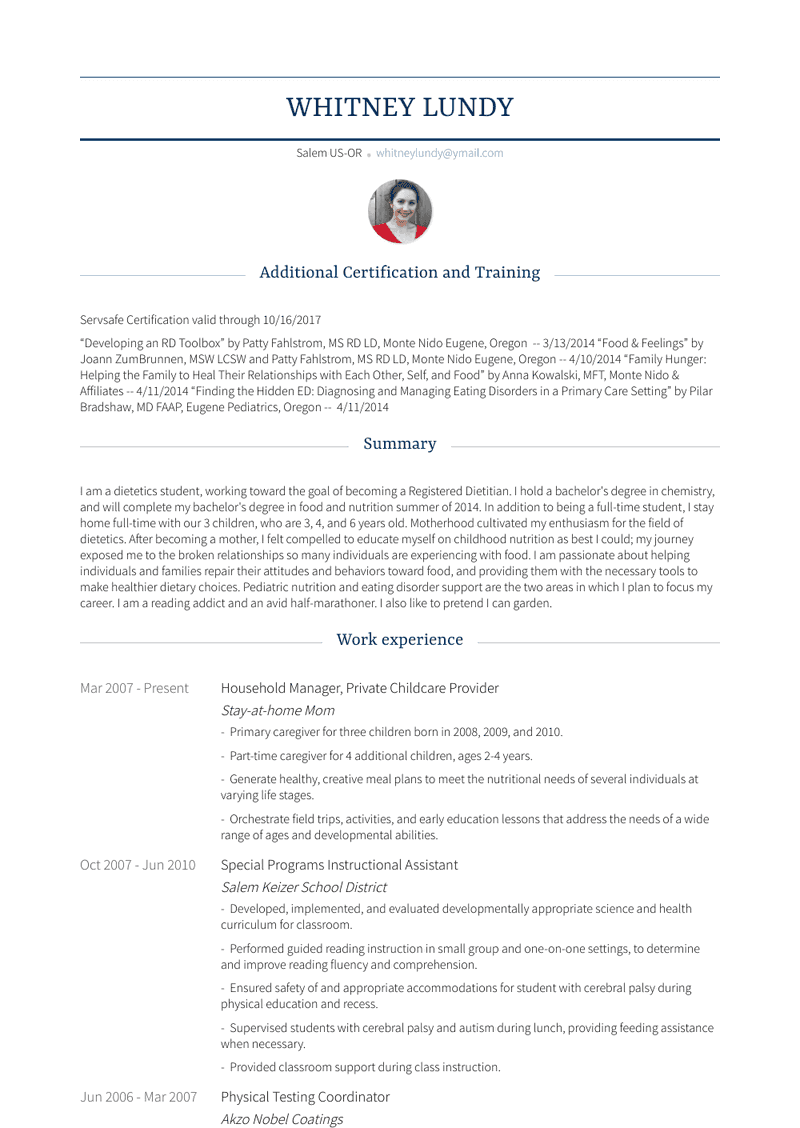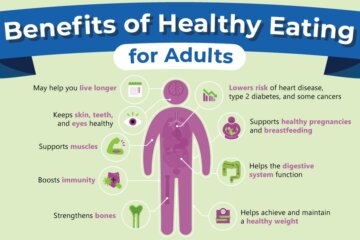“Why is Physical Health Important in Childcare?“
Imagine you’re entrusting your child to a caregiver. You naturally expect them to be energetic, attentive, and fully capable of keeping up with your little one’s boundless energy.
But have you ever considered how the caregiver’s physical health plays a crucial role in ensuring your child’s well-being and safety? Physical health isn’t just a personal matter; in the childcare field, it’s a professional necessity. When caregivers are physically fit, they can engage more actively, respond swiftly to emergencies, and maintain the stamina needed to create a nurturing environment.
You’ll discover how a caregiver’s physical health directly impacts your child’s experience and development. Keep reading to uncover why this often-overlooked aspect is vital for providing the highest quality care for your child.
Physical Health And Child Development
Physical health plays a vital role in child development. It supports physical growth, mental well-being, and social skills. Healthy children learn better and interact positively with others.
Physical health is a cornerstone in the childcare field, playing a crucial role in the development of children. From toddlers taking their first steps to preschoolers running around the playground, physical activity shapes their growth and learning experiences. Understanding the connection between physical health and child development can help you support children in reaching their full potential.
Understanding The Basics Of Physical Health
Physical health isn’t just about exercise. It involves a balanced diet, adequate sleep, and regular check-ups. These elements create a foundation for children to grow and thrive. You might notice a child with good physical health is often more energetic and focused, which directly affects their learning ability.
The Impact On Cognitive Skills
Did you know that physical activity can enhance cognitive skills? Studies show children who engage in regular physical activities tend to have better memory and concentration. Encouraging active play, like jumping rope or playing tag, can boost brain function. How can you integrate more physical activities into your childcare routine?
Social Skills And Physical Health
Physical health also influences social skills. When children play together, they learn teamwork and communication. Organizing group activities like obstacle courses or team sports fosters these essential skills. You’ll notice children expressing themselves better and building friendships through shared physical experiences.
Physical Health And Emotional Well-being
Physical activity is a natural stress reliever. Children who participate in regular physical activities often display better emotional resilience. Whether it’s the joy of running around or the calm after a yoga session, physical health contributes to a child’s emotional stability. Have you observed how a simple game can brighten a child’s day?
Practical Steps To Encourage Physical Health
Integrate short, fun physical activities into daily routines. Consider morning stretches or afternoon dance parties. Focus on variety to keep children engaged and excited. Share your enthusiasm for physical health—it can be contagious! Have you tried introducing a new game or activity recently? Physical health is not just a component of childcare; it’s a vital part of child development. By fostering physical health, you can contribute to the overall growth and well-being of the children in your care. What steps will you take to enhance physical health in your childcare environment?

Credit: www.rasmussen.edu
Building Strong Immunity
Physical health is crucial in childcare. It supports strong immunity and ensures caregivers can meet children’s needs effectively. Healthy caregivers are less likely to spread illnesses, providing a safer environment for children.
Building strong immunity is crucial in the childcare field. Children are naturally curious, touching everything in sight and exploring the world around them. As a childcare provider, you have the responsibility to help them build a robust immune system that can handle these daily interactions.
Understanding The Basics
Your role in childcare isn’t just about supervision; it’s about nurturing healthy habits. Providing a balanced diet full of fruits and vegetables is a simple yet effective way to strengthen a child’s immunity. Make meal times exciting—colorful plates and fun shapes can encourage even the pickiest eaters to try new things. Physical activity doesn’t just keep children fit; it boosts their immune system. Encourage outdoor play and physical games that get them moving. Remember the joy you felt playing tag or jumping rope as a child? Those activities are not only fun but essential for developing strong immunity.
Hygiene Practices
Teaching children proper hygiene is vital. Simple routines like washing hands before meals and after playing outside can make a huge difference. You might be surprised at how quickly they pick up these habits. Share stories of how these practices helped you avoid getting sick, making hygiene relatable and important.
Sleep And Rest
Quality sleep is a cornerstone of immunity. Ensure children have a consistent sleep schedule. Consider how refreshed you feel after a good night’s sleep. Sleep helps repair and rejuvenate their bodies, making them more resilient to illness.
Stress Management
Even children experience stress, affecting their immunity. Create a calm and supportive environment where they feel safe to express themselves. You can introduce relaxation techniques like deep breathing or storytelling. Ask yourself, how can you make their world a little less overwhelming? Building strong immunity in children is a multifaceted effort. Each choice you make impacts their health and well-being. Are you ready to be part of their journey towards a healthier, happier life?
Role Of Nutrition
Nutrition plays a crucial role in childcare. Proper nutrition ensures children have the energy and nutrients needed for growth. It impacts their physical health and development. Healthy eating habits begin early. Good nutrition supports learning and helps prevent diseases.
Balanced Diet
A balanced diet is essential for children. It includes fruits, vegetables, proteins, and grains. Each food group offers vital nutrients. Fruits and vegetables provide vitamins and minerals. Proteins support muscle growth. Grains offer energy and fiber. A balanced diet helps maintain a healthy weight.
Children need variety in their meals. Different colors on the plate mean diverse nutrients. Eating a rainbow of foods is beneficial. It keeps meals interesting and nutritious. Childcare providers must encourage balanced meals.
Hydration
Staying hydrated is vital for children. Water is the best choice for hydration. It helps with digestion and keeps the body cool. Dehydration can lead to fatigue and poor concentration. Children need access to water throughout the day.
Childcare settings should promote regular water breaks. Encourage children to drink water, especially after physical activity. Proper hydration supports overall health. It enhances learning and playtime. Ensuring children are well-hydrated is a key responsibility.

Credit: www.newhorizonacademy.net
Exercise And Active Play
Exercise and active play are crucial in the childcare field. They foster physical health and overall well-being in children. Children need regular physical activity to grow and develop properly. Engaging in active play helps them build strong muscles and bones. It also supports their mental and emotional health. Let’s explore how exercise and play benefit children in childcare settings.
Benefits Of Regular Exercise
Regular exercise helps children maintain a healthy weight. It reduces the risk of obesity and related health issues. Active children often have better sleep patterns. Exercise can improve their mood and reduce anxiety. It boosts self-esteem and social skills too. Children who exercise regularly perform better in school. They show improved concentration and memory.
Encouraging Play
Encouraging play in childcare settings is essential. Create an environment that promotes active play. Provide safe spaces for running and jumping. Offer equipment like balls, hoops, and ropes. Organize group activities to foster teamwork. Include games that challenge their physical abilities. Encourage outdoor play whenever possible. Nature provides endless opportunities for exploration. Guide children in discovering new ways to move and play.
Sleep And Rest Importance
Ensuring children get enough sleep and rest supports their physical health. It helps boost energy levels and improves concentration, enabling caregivers to nurture young minds effectively. A balanced routine of sleep plays a crucial role in maintaining the vitality of both children and caregivers in the childcare field.
Ensuring adequate sleep and rest is paramount in the childcare field. Children’s physical health directly impacts their ability to learn, play, and grow. Sleep acts as a foundation for their daily activities, affecting mood, behavior, and overall development.
Understanding Sleep Patterns In Children
Recognizing that children have different sleep needs is crucial. Infants may need up to 16 hours, while toddlers require about 11-14 hours. Paying attention to these patterns helps caregivers plan daily activities and rest periods effectively.
Benefits Of Adequate Sleep
Quality sleep significantly boosts a child’s cognitive functions. Kids who sleep well display improved attention, memory, and learning abilities. Additionally, sleep supports emotional stability, helping them manage stress and anxiety better.
Role Of Rest In Physical Health
Rest is just as vital as sleep for children’s physical health. It allows their bodies to recover and build energy for play and learning. Incorporating short rest periods during the day can enhance their ability to focus and engage.
Creating A Sleep-friendly Environment
Setting up a conducive sleep environment is key. Ensure the room is quiet, dark, and at a comfortable temperature. Consistent sleep routines, like reading before bed, can signal to children that it’s time to wind down.
Addressing Sleep Challenges
Are you noticing changes in a child’s behavior? Sleep difficulties might be the culprit. Open communication with parents can help identify underlying issues and find solutions together.
Tips For Encouraging Better Sleep
Encourage physical activity during the day to tire children out naturally. Limit screen time before bed to prevent overstimulation. Consistency is key—maintain regular sleep and wake times, even on weekends.
By prioritizing sleep and rest, you’re setting the groundwork for healthier, happier, and more active children. How will you make sleep a priority in your childcare approach?
Mental Health Connection
Physical health plays a vital role in childcare. It ensures caregivers have the energy and strength to support children. Healthy caregivers can better handle stress, improving mental health and creating a positive environment for kids.
When discussing physical health in the childcare field, the mental health connection is crucial. Your mental well-being is directly tied to your physical health. As someone caring for children, you know the importance of maintaining your own health to provide a nurturing environment. But have you ever considered how your physical health impacts your mental state?
Reducing Stress
When you’re physically healthy, you’re better equipped to handle stress. Imagine dealing with a room full of energetic toddlers while feeling sick or fatigued. It’s overwhelming, right? By maintaining good physical health, you boost your ability to manage stress effectively. Regular physical activity releases endorphins, which are natural mood lifters. They help you stay calm and composed, even on the busiest days. Remember the last time you went for a brisk walk and felt your mind clear? That’s the power of physical health reducing stress.
Promoting Well-being
Physical health doesn’t just keep stress at bay; it promotes overall well-being. When you feel good physically, you’re more likely to experience positive mental health. This means you can approach childcare tasks with enthusiasm and positivity. Healthy eating, exercise, and adequate sleep contribute to a better mood and increased energy. Think about the days when you eat a balanced meal and get a good night’s sleep. You’re more alert and ready to engage with the kids, making a meaningful impact on their lives.
Maintaining physical health is not just about avoiding illness; it’s about ensuring you’re mentally ready to support and guide the children in your care. How can you prioritize your physical health to boost your mental well-being today?
Preventing Childhood Obesity
Physical health plays a vital role in childcare, helping prevent childhood obesity. Active children develop better physically and mentally.
Preventing childhood obesity is a critical aspect of maintaining physical health in the childcare field. With the rise in obesity rates among children, it’s more important than ever to focus on their well-being. Healthy habits developed during early years can set the foundation for a lifetime of good health.
Understanding The Impact Of Childhood Obesity
Childhood obesity doesn’t just affect a child’s physical appearance; it can lead to serious health problems. These include diabetes, heart disease, and joint issues. It’s essential to understand that preventing obesity is not just about diet but also about promoting an active lifestyle.
The Role Of Childcare Providers
As a childcare provider, you play a significant role in shaping children’s health habits. Encouraging physical activities, like outdoor games and exercises, can help prevent obesity. Providing balanced meals and snacks ensures children receive the nutrition they need without the excess calories.
Creating A Healthy Environment
Creating a supportive and healthy environment in your childcare setting is crucial. Ensure that there is ample space for physical play and that nutritious food options are always available. Consider organizing educational sessions for both children and parents about healthy eating and the importance of staying active.
Practical Steps To Promote Physical Activity
Simple actions like incorporating more playtime or organizing group activities can significantly impact children’s health. Encourage children to participate in sports or dance, which are fun ways to stay active. You might be surprised at how much they enjoy these activities and how it boosts their overall well-being.
Engaging Parents In The Process
Parents are your allies in the fight against childhood obesity. Communicate regularly with them about their child’s progress and any concerns. Sharing tips and resources for healthy living can empower parents to continue these practices at home. Are there specific strategies you use to promote physical health among the children in your care? How do you engage parents in this vital mission? Your insights and experiences can make a real difference in tackling childhood obesity.
Healthy Habits For Life
Physical health plays a vital role in childcare. It ensures caregivers have the energy and strength to support children. Healthy habits also set a positive example for young minds, promoting lifelong wellness.
Maintaining physical health is crucial in the childcare field, not just for caregivers, but also for the children themselves. Developing healthy habits early in life sets the stage for a lifetime of wellness. These habits build a foundation of strength, endurance, and resilience. Let’s explore how instilling early routines and parental involvement can play a pivotal role in nurturing these habits.
Instilling Early Routines
Children are like sponges, absorbing everything they see and experience. Establishing healthy routines at a young age can significantly impact their lifelong habits. A simple morning exercise routine or a nutritious breakfast is more than just a daily task; it’s an investment in their future health. Think about a child who starts their day with a short yoga session. This not only boosts their flexibility but also enhances their focus throughout the day. Encouraging these routines teaches children the importance of taking care of their body. Are you fostering such routines in your childcare setting?
Parental Involvement
Parents play a crucial role in reinforcing healthy habits at home. When parents actively participate in their child’s wellness journey, it creates a consistent message about the importance of health. Sharing meal prep ideas or involving kids in grocery shopping can turn these tasks into lessons on nutrition. Imagine a parent who schedules regular outdoor activities with their child. These moments create bonding opportunities and emphasize the joy of an active lifestyle. Encouraging parents to stay engaged in these habits ensures that children see health as a family priority. How can you engage parents more in this process? By instilling early routines and encouraging parental involvement, you set children on a path to lifelong health and wellbeing. It’s about creating a supportive environment where children can thrive physically, emotionally, and mentally.
Challenges In Maintaining Physical Health
Physical health plays a vital role in childcare. It ensures caregivers can meet daily demands and prevent fatigue. Challenges like stress and time constraints can impact their well-being, affecting care quality. Prioritizing health aids in maintaining energy and focus necessary for effective childcare.
Maintaining physical health in the childcare field is no small feat. It comes with a unique set of challenges that can impact both children and caregivers. Understanding these hurdles is essential for fostering an environment where everyone thrives.
Screen Time
In today’s digital age, screen time is a formidable challenge. Children often spend hours in front of tablets and TVs. This can lead to a decrease in physical activity, affecting their overall health. As a caregiver, you might notice how children become less interested in outdoor play. It’s tempting to use screens as a distraction, but this can set unhealthy habits. Consider setting limits and encouraging interactive play instead. Have you ever thought about how screen time affects a child’s posture? Slouching on the couch or hunching over a device can lead to long-term issues. Encourage regular breaks and introduce activities that promote good posture.
Sedentary Lifestyle
A sedentary lifestyle is another hurdle in childcare settings. With the rise of indoor activities, children often lack the motivation for physical play. This inactivity can contribute to weight gain and other health problems. Think about your own childhood. Did you spend hours running around outside? Today’s children need that same push toward active play. Encouraging movement doesn’t have to be complicated. Simple games like tag or hide-and-seek can get children moving. Make it a part of their daily routine to instill healthy habits early on. How do you address these challenges in your childcare environment? By being proactive, you can help shape a healthier future for the children in your care.
Community And Healthcare Support
Community and healthcare support play a crucial role in childcare. Physical health is vital for childcare providers to effectively cater to children’s needs. A healthy workforce ensures efficient and reliable care. Community involvement and healthcare resources enhance the overall well-being of childcare providers.
Community Involvement
Community support fosters a healthy childcare environment. Local organizations can offer health workshops. These workshops educate caregivers on maintaining physical health. Community centers might provide fitness classes tailored to childcare workers. Exercise routines help boost energy levels and improve overall health.
Access To Healthcare Resources
Healthcare resources are essential for childcare providers. Regular health check-ups ensure early detection of health issues. Providers can access preventive care services. These services include vaccinations and wellness exams. Healthcare facilities might offer mental health support, aiding in stress management.
Benefits Of Healthcare Support
Healthcare support brings numerous benefits. Providers receive guidance on maintaining a balanced lifestyle. Access to nutritional advice helps in adopting healthy eating habits. Healthcare professionals can offer personalized fitness plans. A healthier workforce leads to improved childcare quality.
Role Of Healthcare Professionals
Healthcare professionals play a significant role in childcare settings. They conduct seminars on physical health and wellness. These seminars provide valuable insights into maintaining health. Professionals can offer advice on injury prevention. Their expertise helps in creating a safer environment for children.

Credit: activeforlife.com
Frequently Asked Questions
Why Is Physical Health Crucial In Childcare?
Physical health is vital in childcare as it ensures caregivers can actively engage with children. Healthy caregivers can better manage stress, maintain energy levels, and prevent illness. This promotes a safe, active environment conducive to child development and learning.
How Does Physical Health Affect Childcare Quality?
Physical health directly impacts childcare quality by influencing caregiver energy and alertness. Healthy caregivers can provide better supervision, respond promptly to emergencies, and engage effectively. This contributes to a nurturing atmosphere, enhancing children’s safety, learning, and overall development.
Can Physical Health Impact Children’s Development?
Yes, physical health of caregivers can significantly impact children’s development. Healthy caregivers can actively participate in activities, fostering children’s physical, emotional, and cognitive growth. They model healthy lifestyles, encourage active play, and create a positive, energetic environment conducive to child development.
What Are The Benefits Of Healthy Caregivers?
Healthy caregivers offer numerous benefits in childcare settings. They provide better attention, supervision, and interaction with children. This supports children’s safety, learning, and development. Healthy caregivers also create a positive atmosphere, modeling active lifestyles and fostering children’s overall well-being.
Conclusion
Physical health is crucial in the childcare field. Healthy caregivers provide better care. They have more energy and patience. This helps in creating a safe environment. Children thrive with attentive caregivers. Physical well-being reduces stress and injuries. It ensures caregivers can perform their duties effectively.
Overall, prioritizing health benefits both caregivers and children. A healthy workforce leads to a nurturing childcare setting. So, focus on maintaining good health. It’s vital for success in childcare. Caregivers’ well-being directly impacts the quality of care. Make health a priority.
It makes a big difference.

“As the voice behind Radiant Glow Health, we are dedicated to being your ultimate wellness and vitality companion. Our mission is to inspire and guide you on your journey to a healthier and more vibrant life. Join us as we explore holistic health practices and empower you to radiate wellness from within.”



